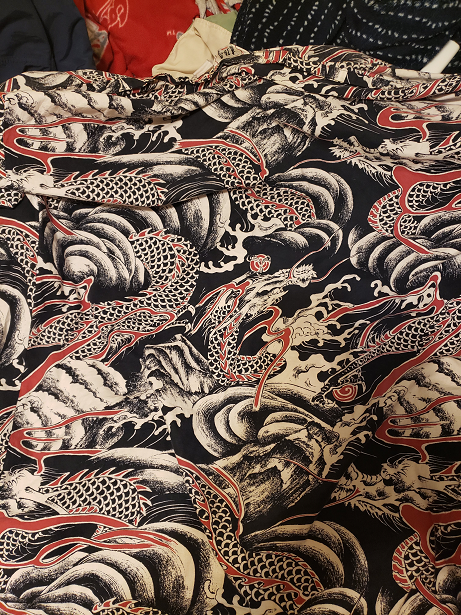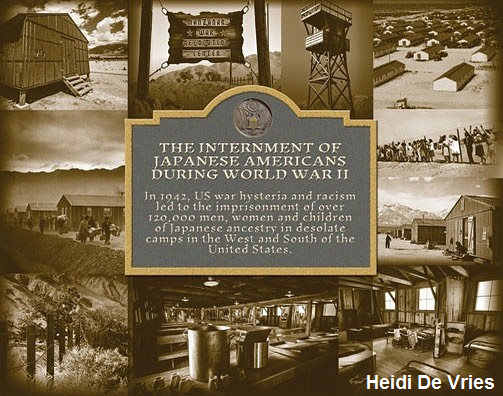ALL’S FAIR : Bainbridge Mochitsuki Festival

Why hello there, and konnichiwa to Kitchen Castastrophe’s ongoing segment “All’s Fair”, where Jon wanders around a food festival, eating crap and buying things, but he takes pictures about it so it’s technically work! Today’s visit is one fraught with opportunities for some risky and racially-based shit, so I HOPE WE’RE ALL READY FOR A WHITE GUY TO TALK ABOUT IT. Because “liberal white dude” hot takes are the HOTTEST of takes.
However, before I do that, I have to reveal a dark secret. One that has remained mostly hidden for years, and only now can be dragged kicking and screaming into the harsh light of truth, where we can reconcile with it, and come to terms with its implications. And that truth is: My family are kind of weebs.
Starting off a Cultural Festival with a Talk about Cultural Insensitivity. Bold Strategy, Cotton.
We’ll see if it pays off, Title Jon. In case you’re a functioning adult with a productive life, and therefore don’t know what a “weeb” is, OH BOY is this conversation going to be fun. Also, rude, because I have definitely explained it on the site before. “Weeb” is slang for “weeaboo”, ANOTHER slang word, because trust me, this is PEAK 2010’s internet etymology, so we have to slog through five layers of nonsense to get to an actual meaning.
For instance, this picture has…at least 4 jokes going on at once in it. And it’s pretty funny, to someone in the target audience.
Fuck if I’m explaining it
First off, the important thing to know is that ‘weeaboo’ is an insult, so you shouldn’t just throw it around willy-nilly now that you’ve heard it. What is it an insult FOR? Glad you asked, and that is actually best answered by visiting the source of the term, the Mos Eisley of the Internet, 4chan: A wretched hive of scum and villainy that nevertheless will have the occasional scruffy nerf-herding pilot to help you and your weird old man friend quickly leave the planet without the government getting involved.
The kind of guy who conducts his man-boy smuggling negotiations with his shirt open almost to his nipples.
The more you think about this scene, the worse of a person Han Solo is.
4chan is a site with a lot of different boards talking about a lot of different topics, if you’re unaware. Though that neutral description makes it seem MUCH nicer than it actually is. According to a UN report, hate speech is used roughly every 4 seconds on the platform. However, despite being a seething pit of despair and rage, it was ALSO, for many years, the churning primordial chaos that a lot of internet culture arose from. The modern understanding of “memes” arose from iterative trends first embraced in 4chan.
So, several years ago, 4chan was going through a phase where they were particularly fond of the insult “Wapanese”, to refer to a White or Western person with an obsession with a relatively skewed understanding of Japanese culture, mostly so they could complain about people who watched Naruto. The moderators (people who ensure that things stay comparatively on-topic/civil) decided they were sick of reading the word, and put in a word-filter: any time someone attempted to write “Wapanese” on the site, it would be converted to another word, ‘weeaboo’. Which is gibberish. But it was gibberish with a POINT. (And I assure you, we’re almost done with this, we’ll get back to personal stuff in 2 paragraphs)
See, there is a webcomic called Perry Bible Fellowship that is, despite looking rather whimsical and child-like, is VERY much not for children. Jokes about infidelity, murder, child abuse, dark pastiches of uncaring society. Seriously, the JOKE is how friendly it looks compared to the horrible things it’s talking about. One of the strips, “weeaboo”, is rather work-safe, and can be viewed here. It’s one of his lighter and subtler jokes, and was clearly an admonishment when used as the word filter: “Stop calling people that, it’s dumb gibberish and a waste of time.” However, the plan backfired, and people found that ‘weeaboo’ is just more fun to SAY, so the term became even MORE popular than the insult it was replacing ever had been.
It’s not really relevant to the conversation (thank god), but I was looking for a good picture to show off ‘weeaboos’, and instead found this dude at an anime convention KILLING his Hank Venture Cosplay, so I said “close enough”.
Thus, a kind of racist insult got replaced with a nonsense word, and the nonsense word was accepted and adopted by a broad audience. Now, if you’re connected to internet culture to any great degree (a Youtuber, a Twitch streamer, anything like that), you’re probably at least vaguely aware of the term, and that it has something to do with people who like ninjas, anime, and sushi.
And that’s where my family comes in.
Yu Kata Know Your Audience, Man.
Now that you know the term, I assume that my credentials as a weeb speak for themselves: My second show review on this site was for “Samurai Gourmet”, a show that is INTENSELY Japanese. I reviewed a fantasy anime about a Japanese tavern transported to medieval Europe. My first “Looking in Abroad’s Pantries”: Japan. I have a guy who I don’t pay on staff who I call “Head of Weeaboo Studies”. I own a Yukata, and can explain what it IS.
It’s a light, unlined summer Kimono.
If a Kimono is a three-piece formal suit, the yukata is a Polo and khaki capris.
Nate’s credentials aren’t obvious, other than the fact that the second cookbook he ever owned was simply named “Japan”. Though he also does it in one very subtle way, as Nathan is very ingrained into the ‘sarariman’ mindset: Nate is VERY loyal to companies he works for. He’s diligent, hard-working, and constantly willing to accept more responsibilities. If it’s for the good of the company, he’s down to make it happen.
But secretly the biggest weeb of our family, and in many ways the subtlest, is my mother. See, my mom has actually LIVED in Japan for several months on an extended work assignment. I honestly don’t remember how long it WAS, because at the time I was on the other side of the state due to college and/or work. Somewhere around 6-8 months. As such, she has the greatest exposure to their culture, which has led to subtle influences. Every Sunday, she watches travel programs with a focus on Japan. She’s the one who bought the yukata. The easiest new restaurants I can convince her to try are Japanese. Just before New Year’s, we stopped by an Asian food market for over an hour, and spent more money there than was strictly reasonable.
“Oh, that’s not really all that much, Jon.”
I know. This is less than HALF of what we bought.
As such, it came as little surprise to me that, after our shopping trip, she remembered that there was a Japanese Festival quickly approaching in a nearby town, and since the festival is thematically and spiritually focused on food, it seemed a good place for us to go. So let’s talk about the Bainbridge Island Mochi-Tsuki festival.
Mo Mochi, Mo Problems
First, of course, we have to explain what Mochi is: Mochi is a rice cake, made by pounding rice into…a cake. Look, some foods are really easy to explain.
List of ingredients: Rice, Rice Flour, Water.
Bean-filled version: As above, but with beans.
It is HUGELY important to Japanese food culture, being considered ‘the food of the gods’, and a symbolic food tied to the New Year as a way to promote good health and good luck for around 1,000 years. So imagine a Thanksgiving turkey, Southern Hop John, and a little touch of Communion Wafer all mixed into one food for a scale of how culturally important it is. The process for making it in the traditional way is actually quite long: a special variety of rice has to be soaked overnight, and then steamed, and then pounded into a paste that is floured, folded, and shaped into cakes. The pounding is the most visually impressive and emotionally fraught part of the process: it’s normally done with large wooden mallets, and the hot mochi rice has to be turned, by hand, in between pounds of the hammer. So there’s a large risk that if someone screws up the tempo, someone gets their hand whacked with a 10 pound hammer.
And, in an ongoing trend with my family, we recently discovered that, for the last 30 years, there’s been a local festival and event connected with the practice that we’d never heard about. (Apparently, literally EVERYTHING in the Puget Sound started right around when I was born, and thus my parents were too busy to hear about it.) This was the annual New Year’s Mochitsuki Festival. Mochitsuki directly translates as “Mochi-Moon” or “Moon Mochi”, but refers to the pounding and shaping of rice into mochi. This year, the festival was held at a local middle school, in order to fit in more attendees. I don’t know why they did that, as the event was rather sparsely attended.
The middle school’s parking lot was full. A nearby school’s parking lot was full. AND there were cars parked like this for half a mile either direction down the road by the end. Never before has the NEED for buses at schools been so clearly shown to me.
Into the throngs of people my mother and I pushed, somewhat interested to see and do, if not everything, then at least a respectable amount. Outside the school, the pounding was in full swing, with a mochi-making expert calling out the hammer timing for volunteers who could come up and take a turn. I considered joining in, but the crowd surrounding the event made me assume that such a thrill would be akin to Disneyland without a Fast-Pass: a 90-minute wait for 4 minutes of excitement and fear.
Also, the number of children is above my comfort level.
The number of children with HAMMERS was WAY above my comfort level.
Inside, you could donate to the local Japanese American Community to get mocha to eat or take-home. You could also take part in shaping the actual cakes at many stations. My mother and I weren’t hugely interested in shaping the dough, as we had just recently completed our own family rituals for Christmas, which involved a lot of food prep. We were prepped out. But we hopped in line and picked up some mochi: a pair of adzuki-bean stuffed mochi cakes, and a single cake of pure mochi. We also tried a sweetened-soy dipping sauce, and some green tea.
“Jon, that looks like the same box of mochi.”
I, uh…MAY have forgotten to take any more pictures of the mochi before they were consumed.
The event we spent the most time at, however, was the historical section. Which was not, as you might think, about mochi’s history in Japan. No, light-hearted rice cakes were not the fare for here. This was a heavier dish to swallow. Because the history of the Bainbridge Island Japanese American Community is shaped, as so many Japanese American communities are, by their sudden and prominent absence during World War 2.
Nidoto Nai Yoni
Bainbridge Island is not alone in holding this moment in history in grave importance. The West Coast has many memorials to the Internment. Portland, San Jose, and Fresno all hold memorials. As far inland as Colorado holds a memorial not to the interment itself, but to the governor of Colorado at the time, who was the first US elected official to apologize for the interment. Bainbridge’s own memorial, the Japanese American Exclusion Memorial, is notable for standing on the former Eagledale Ferry Dock location, where the Bainbridge Island Japanese population reported for interment, the first to do so in America.
It is not a happy story, as we all hopefully know. It remains one of six events that the United States government has officially apologized for, alongside Slavery, the mistreatment of Native peoples, and the Overthrow of the Kingdom of Hawaii. And I am not ashamed or afraid to admit that reading about it makes me weep. In fact, just looking for pictures for this section of the post has broken me into tears at least 3 times.
This picture is the least moving one I could find. Which was lucky, because it was the only one I was sure about my ability to share.
It is likely no coincidence that the Bainbridge Island Mochitsuki Festival is 30 years old, meaning it began just 5 months after Ronald Reagan signed the Civil Liberties Act of 1988, the act that formally apologized for the internment, and paid surviving internees $20,000. And while I have striven to keep this blog largely apolitical, with only the odd joke here or there, or direct reference to my own political leanings (typically as a reason to avoid discussing politics here) I do want to cite one thing. One of the things that breaks my heart about this process is the words written on the Memorial at Bainbridge. Nidoto nai yoni. Which, directly translated is gibberish, because Japanese uses Object-Subject-Verb order instead of English’s Subject-Verb - Object. (Specifically, it translates to “never again, don’t hope/wish/permit”.) But is best rendered as: “Let it not happen again.” It is not a command, but a hope. A request. A prayer. “Let us never make this mistake a second time”. Let us never again put children in camps, tear families apart, and let racial and racist fears drive us to do the wrong thing. I have little doubt the parallels were obvious to those at the event. And I’m so, so sorry.
Normally this is where we’d plug our social media stuff, but I really harshed my own mood there, so I just hope you have a great day, a great weekend, and we’ll see you on Monday, where things will be funny again.
MONDAY: THINGS GET FUNNY AGAIN, APPARENTLY. IN ORDER TO FIGHT OLD MAN WINTER’S CLAWS, I PERVERT FRENCH COOKING WITH A HOT VERSION OF A COLD SOUP. ALSO, NAZIS! (WAIT, WHAT?)
NEXT THURSDAY: IF WE’RE GOING TO PERVERT FRENCH FOOD, WE’RE GONG ALL THE WAY. JON RAIDS FRANCE’S KITCHENS, IN ANOTHER RAIDING ABROAD’S PANTRIES.















